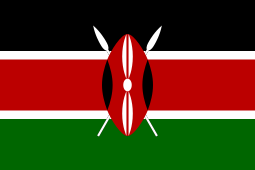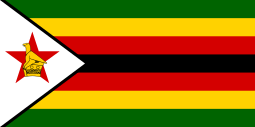23 November 2017
Kenya And Zimbabwe
One president stays in, another president goes out.
by Neil Tidmarsh
 This week, the Supreme Court in one East African country decided that the president should stay, while the governing party (with the help of the army) in another East African country decided that the president should go.
This week, the Supreme Court in one East African country decided that the president should stay, while the governing party (with the help of the army) in another East African country decided that the president should go.
One would normally expect a supreme court to be in the right and a politically-interfering army (especially when mobilised by one of two warring factions within the ruling party) to be in the wrong. But the suspicion here is that things are the other way round – we seem to be in the curious position of cheering a military coup and booing a legal judgement. And that’s the least of various puzzling ambiguities about these two events.
Kenya’s President Uhuru Kenyatta has been in office since 2013. He appeared to win a second term in elections three months ago, but the results were disputed by opposition leader Raila Odinga. Observers from the US, the EU and the African Union said that the elections were free and fair, but Mr Odinga claimed that the election’s computer systems had been hacked and votes rigged. And the election commission’s head of information technology had been kidnapped and murdered just before the election. The Supreme Court accepted Mr Odinga’s claims, finding that the electoral commission had “committed irregularities and illegalities in the transmission of results”. It annulled the result and ordered a re-run.
The re-run took place last month. It was boycotted by the opposition, which maintained that the election board hadn’t had time to fix the “irregularities and illegalities”. The electoral board did appear to be in disarray: one of its seven commissioners had fled to New York following alleged death threats; its chairman said that it was hamstrung by political interference from all sides; and its chief executive and other officials had taken leave of absence. Opposition demonstrators, calling for the election to be postponed, were killed and wounded when police opened fire on rallies held after the interior ministry banned demonstrations. There was a court hearing to consider delaying the re-run, but some of the judges didn’t attend because of alleged intimidation and the deputy justice’s bodyguard was shot by assailants on a motorcycle.
President Kenyatta won the re-run, with 98% of the vote. But there was a very low turnout. Mr Odinga rejected the result and called for strikes and protests. At least ten people were killed in violent demonstrations (seventy were killed in the two months between the two elections) as conflict escalated between the police and protesters and between different ethnic and political groups.
This week the Supreme Court dismissed two legal challenges to the results of the re-run. Mr Kenyatta will be inaugurated for a second term as President next week.
The court was brave to annul the results of the initial election in August, but the over-hasty scheduling of the re-run for only two months later was puzzling, as was the court’s decision not to delay it until the electoral commission had shown itself to be reformed and ready for it. A question mark is bound to hang over the president’s legitimacy in spite of this week’s Supreme Court decision, and, sadly, the violence will almost certainly continue. And what are we to make of that verdict by observers from the US, the EU and the African Union – who said that August’s elections were free and fair – when “irregularities and illegalities” were later discovered to have taken place?
 Meanwhile, in Zimbabwe, the 93 year old Robert Mugabe’s time as president finally came to an end this week after 37 years. Having spent that time turning the country into a virtual one-party state ruled by his own Zanu-PF, it’s ironic that he was kicked out by that party, in an internal power struggle between two potential successors. The military came out in favour of Emmerson “The Crocodile” Mnangagwa (who was ousted as Vice-President last week and fled the country in fear of his life) against rival Grace Mugabe, the President’s wife.
Meanwhile, in Zimbabwe, the 93 year old Robert Mugabe’s time as president finally came to an end this week after 37 years. Having spent that time turning the country into a virtual one-party state ruled by his own Zanu-PF, it’s ironic that he was kicked out by that party, in an internal power struggle between two potential successors. The military came out in favour of Emmerson “The Crocodile” Mnangagwa (who was ousted as Vice-President last week and fled the country in fear of his life) against rival Grace Mugabe, the President’s wife.
Mr Mugabe was removed without a shot being fired, and the military has to be congratulated on that. But in the absence of a formal impeachment, questions must surely be asked about the constitutional proprieties of the whole business; the resignation was forced, and moreover forced by the military. And such questions can only be answered by open, free and fair elections.
Be that as it may, Mugabe’s departure has been universally celebrated throughout the country by a populace tired of the poverty, corruption and political repression which his regime inflicted on it, and eager for change which will get the economy back on its feet and deliver the freedom and justice of real democracy. Nevertheless, there is reason to be cautious about the chances of those hopes being realised. As it is, Zanu (PF) succeeded in keeping the matter an internal party issue by avoiding formal impeachment proceedings; having secured change at the top, everything can now carry on just as before, if Zanu (PF) so wish. Impeachment proceedings would have brought an opportunity for more wide-reaching and much needed change, as the party would have had to open the door to opposition elements to secure the necessary two-thirds majority. Again, such doubts and questions can only be answered by elections, and Emmerson Mnangagwa is indeed promising a “new era” in which rebuilding the country “is not a job for Zanu (PF) alone but for all the people of Zimbabwe”, with elections scheduled for next March.
At the same time, however, it’s difficult to forget that many have blamed Mr Mnangagwa, as Mr Mugabe’s right-hand man, for the absence of free and fair elections in the past, and that Mr Mugabe himself promised reconciliation and cooperation when he first came to power.
If you enjoyed this post please share it using the buttons above.
Please click here if you would like a weekly email on publication of the ShawSheet

